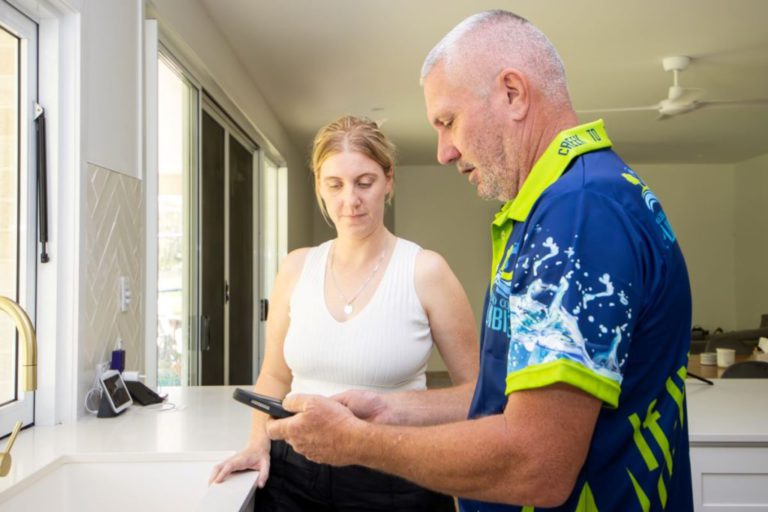When choosing the most suitable hot water system for your household, it is essential to take into account various aspects that extend beyond basic functionality. The modern market highlights the importance of energy efficiency, significant long-term savings, and compatibility with cutting-edge technologies, such as solar power and smart home solutions. For residents in Queensland, the selection process often focuses on two particularly favoured options: solar hot water systems and heat pumps. Gaining a comprehensive understanding of the advantages and features of these systems can empower homeowners to make an informed decision that aligns with their specific household requirements.
Both alternatives provide energy-efficient solutions when compared with conventional electric storage or gas systems. However, they operate differently and cater to distinct household needs, climatic variations, and budget constraints. This article will delve deeply into the unique features of each system, underscoring the rising trend of heat pump systems becoming the preferred choice for homeowners who prioritise efficiency and cost-effectiveness.

Understanding the Mechanics of Solar Hot Water and Heat Pump Systems
How Solar Hot Water Systems Function
Solar hot water systems are designed to capture solar energy using specialised roof-mounted collectors. This harnessed solar energy is subsequently employed to heat water stored in a dedicated tank, offering an environmentally friendly hot water solution. Most systems come with a backup heating mechanism, either electric or gas, to guarantee a consistent supply of hot water during cloudy days or periods of high demand, ensuring comfort and convenience for the entire household.
Understanding Heat Pump Hot Water Systems
Unlike solar hot water systems, heat pumps function independently of sunlight. They extract heat from the surrounding air through a refrigeration cycle and transfer this heat into water within a storage tank. This process resembles the operation of an air conditioning unit but in reverse. Heat pump systems do not necessitate any rooftop components, which simplifies installation and makes them a viable option for a broader array of homes.
Evaluating the Efficiency and Performance of Hot Water Systems
| Factor | Solar Hot Water | Heat Pump System |
|---|---|---|
| Requires direct sunlight | ✓ | ✗ |
| Operates effectively in shaded areas | ✗ | ✓ |
| Available for night-time use | ✗ | ✓ |
| Requires roof space for installation | ✓ | ✗ |
| Consistent performance in winter | ✗ | ✓ (in QLD climates) |
| Eligible for STCs/rebates | ✓ | ✓ |
| Compatible with solar PV systems | ✗ (standalone) | ✓ |
Note: In the warm climate of Queensland, heat pumps typically maintain high efficiency throughout the year, making them a reliable and practical choice for homeowners.
Essential Installation and Maintenance Considerations for Hot Water Systems
Installing solar hot water systems involves meticulously placing collectors on your roof, a process that can prove challenging, particularly for older homes or those with limited roof accessibility. Factors such as shading, roof orientation, and pitch can greatly impact overall performance, making thorough planning indispensable. Furthermore, the arrangement of the tank and plumbing can constrain configuration options, resulting in a more intricate installation process compared to alternative systems.
In contrast, heat pumps are typically situated on the ground and are available in either integrated or split systems, occupying a footprint similar to that of a standard electric tank. They do not require any rooftop components, which streamlines the installation process, making it more convenient for homeowners. Additionally, maintenance for heat pumps is generally less complex, as they feature fewer exposure points to UV rays and harsh weather conditions, ultimately reducing the frequency and costs associated with upkeep.
Maximising Your Financial Savings with the Right Hot Water System
Both solar hot water systems and heat pumps can substantially decrease energy bills. However, heat pumps often provide greater savings for households that:
- Have limited sunlight exposure throughout the day and require a dependable hot water source
- Use hot water during early morning or late evening hours when energy prices tend to be higher
- Already possess rooftop solar PV systems and aim to optimise their energy consumption
- Prefer to avoid relying on roof structures or do not wish to penetrate roof tiles
As heat pumps operate using electricity, they can be programmed to function during peak solar generation hours. This adaptability makes them an excellent complement to existing solar panel installations. Rather than exporting excess energy at a reduced feed-in tariff, homeowners can directly utilise their solar power to effectively heat water, maximising cost-effectiveness and energy efficiency.
Understanding the Initial Costs and Available Rebates for Hot Water Systems
Both solar hot water systems and heat pumps qualify for Small-scale Technology Certificates (STCs), which can markedly reduce the purchase price, making them more accessible to homeowners. The quantity of STCs available depends on various factors including geographical location, system size, and efficiency ratings. Additionally, heat pump systems may be eligible for specific rebates in Queensland under the Energy Efficient Communities Program, which vary based on household characteristics and the nature of the installation.
To effectively navigate these rebate options, it is strongly recommended to consult with a qualified installer, such as Creek to Coast Plumbing. They can offer expert guidance on eligible systems and handle the rebate application process, ensuring that you take full advantage of all available savings as part of the installation service.
Choosing the Optimal Hot Water System for Homes in Queensland
Within the coastal climates of Queensland, including the Sunshine Coast and Moreton Bay, heat pumps often outperform solar hot water systems due to their reliable performance, ease of installation, and compatibility with solar energy technologies. They are particularly beneficial for homes that encounter shading or have semi-sunny conditions, proving especially effective in residences equipped with battery storage or smart controllers that optimise energy usage.

Assessing the Leading Options for Hot Water Systems
While solar hot water systems maintain their relevance, particularly in homes with unshaded, north-facing roofs that have high daily hot water needs, heat pump systems present a more versatile and comprehensive solution for many homeowners across Queensland. They deliver dependable performance, simplified installation processes, and seamless integration with existing solar PV systems, establishing them as a worthwhile investment for energy-conscious homeowners.
If you’re considering an upgrade, we invite you to visit our Heat Pump Hot Water Systems Installation Page for further insights or to request a tailored quote that suits your specific needs.
The Article: Heat Pumps vs Solar Hot Water: Which is Superior? first appeared on https://writebuff.com
The Article Heat Pumps vs. Solar Hot Water: A Comparison of Efficiency Was Found On https://limitsofstrategy.com






